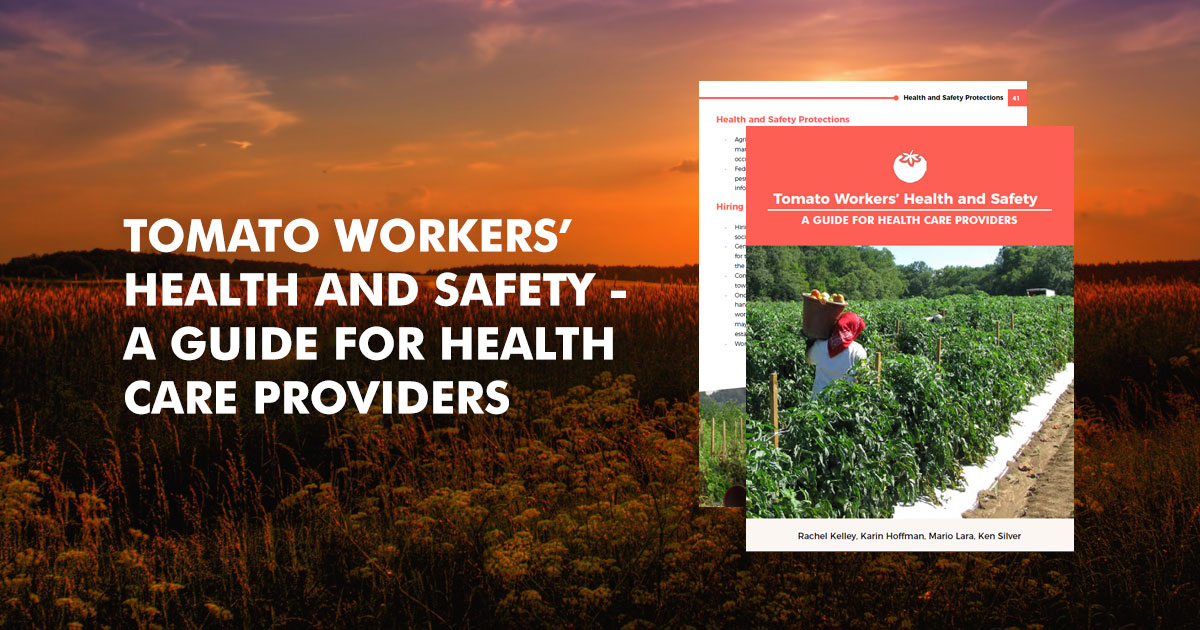The Toolkit is a combination of easy-to-use reference guides for health providers and user friendly health education materials on preventing exposures to toxic chemicals and other substances that affect infant and child health.
copy deeplink Alliance of Nurses for Healthy Environments
Alliance of Nurses for Healthy EnvironmentsThe Alliance of Nurses for Healthy Environments (ANHE) is a network of nurses from around the country (and world) who are acting on the notion that our environment and health are inextricably connected. We are a group of nurses from all walks of our profession – hospital-based, public health, school-based, academics, and advanced practice, to name a few.
We are helping to integrate environmental health into nursing education, greening our many workplaces, incorporating environmental exposure questions into our patient histories, providing anticipatory guidance to pregnant women and parents about environmental risks to children, implementing research that addresses environmental health questions, and advocating for environmental health in our workplaces and governmental institutions.
copy deeplink Workplace, Household, and Personal Predictors of Pesticide Exposure for Farmworkers
Workplace, Household, and Personal Predictors of Pesticide Exposure for FarmworkersDespite ongoing concern about pesticide exposure of farmworkers and their families, relatively few studies have tried to directly test the association of behavioral and environmental factors with pesticide exposure in this population. This study seeks to identify factors potentially associated with pesticide exposure among farmworkers; grade the evidence in the peer-reviewed literature for such associations; and propose a minimum set of measures necessary to understand farmworker risk for pesticide exposure. From: Environmental Health Perspectives
- Quandt Hernanez-Valero et al.pdf (457.88 KB)
copy deeplink Press Release: Work. Respect. Dignity. Shared Images and Stories of Maryland's Eastern Shore Immigrants
Press Release: Work. Respect. Dignity. Shared Images and Stories of Maryland's Eastern Shore ImmigrantsA photo exhibit at Salisbury University’s Downtown Art Gallery depicts the lives, work, and stories of immigrants on Maryland’s Eastern Shore. An exhibit reception and panel discussion on September 18 will include an immigrant who is featured in the images and experts in photojournalism, cultural studies, immigration and migrant health.
- PressRelease_Final_09.09.14.pdf (205.8 KB)
copy deeplink Celebrating the First Anniversary of the External Advisory Board at MCN
Celebrating the First Anniversary of the External Advisory Board at MCNThe first MCN External Advisory Board (EAB) was established with 10 standing members and 10 ad hoc members in June 2015. The EAB is a PEER TECHNICAL AND SCIENTIFIC COMMITTEE established to promote cross-disciplinary collaboration and to give expert advice on community-based participatory research and the development and expansion of MCN programs. The distinguished members offer a breadth of professional expertise to advance MCN’s mission. During the first year of service, our EAB members participated in more than 44 ACTIVITIES AMONG 10 MCN STAFF. This totaled more than 246 direct hours of collaboration by providing their expertise and technical assistance in grant and award preparation, scientific consultation, conference planning, and expanding the vision of MCN among their constituencies.
- EAB-1year-FINAL.pdf (328.03 KB)
copy deeplink Creating a Patient Centered Medical Home for Those on the Move [Health Network]
Creating a Patient Centered Medical Home for Those on the Move [Health Network]Migrant Clinicians Network promotes medical home transformation designed to include patients who experience barriers to health care due to mobility, poverty, language, and culture.
Health Network assures continuity of care and treatment completion by providing comprehensive case management, medical records transfer and follow up services for mobile patients.
- pcmh-hn-flyer.pdf (449.21 KB)
- HN-Flyer-Spa.pdf (475.97 KB)
A handout illustrating the way to read a nutrition label. The resource is available in both english and spanish.
- mcnreadnutritionlabel09_engspan.pdf (78.9 KB)
copy deeplink Tomato Workers’ Health and Safety - A Guide for Health Care Providers
Tomato Workers’ Health and Safety - A Guide for Health Care Providers
Available in English and Spanish!
Created by MCN, medical student Rachel Kelley of UCSF, and collaborators at East Tennessee State University, this guide is intended to be a reference for health care providers who work with people employed in the U.S. tomato industry. It aims to prepare providers with a more detailed understanding of hazards, health issues, and work processes associated with different tomato industry jobs.
This guide draws on published research, experienced health professionals’ advice, and information gathered from interviews and focus groups conducted with 36 tomato workers from diverse backgrounds and 14 community leaders familiar with tomato workers’ health in multiple states. It is important to note that health and safety conditions at any particular farm or company may vary from what is described here. Furthermore, individual workers may experience the same set of conditions differently.
The first section of the guide focuses on health hazards and health conditions commonly encountered in tomato production. The second section consists of detailed descriptions and illustrations of different tomato production tasks. The third section covers “human resources” information and policies that apply to U.S. agricultural workers generally. The appendices contain a Spanish-English glossary, further detail about different types of pesticides, information about agricultural occupational health policies and regulation, and a list of resources and readings.
"These materials are designed to be simple and useful in helping physicians and health-care professionals to meet the needs of their patients who may be undocumented or suffering stresses related to close family or community members being undocumented. While there are many toolkits being developed, we hope that these materials might be very easy to use and enable the physician or other health-care professional to address the most immediate needs of such patients."
copy deeplink "Yo me la puse" - COVID-19 Vaccination Posters
"Yo me la puse" - COVID-19 Vaccination PostersShow your support of the vaccine in your community! MCN’s #YoMeLaPuse campaign offers five beautifully designed posters showing people of various ages after their vaccination that are available for download and printing. A sixth poster is customizable, allowing communities to paste in a photo of a local religious leader, or community health care providers, or other community leader who is proud to have gotten the vaccine. The posters are accompanied by a short video in Spanish, which can be played at community events and in waiting rooms.

Templates for creating your own posters are available below.
- 21_YMLP-mujer-1_Poster.pdf (1.06 MB)
- 21_YMLP-mujer-2_Poster.pdf (556.35 KB)
- 21_YMLP-mujer-3_Poster.pdf (513.64 KB)
- 21_YMLP-hombre-1_Poster.pdf (1.88 MB)
- 21_YMLP-hombre-2_Poster.pdf (309.49 KB)
- 2021_Yo-me-la-puse_Póster_Plantilla.pptx (1.34 MB)
- 2021_Yo-me-la-puse_Poster_Template.pptx (1.34 MB)
- #YoMeLaPuse COVID-19 Vaccine.mp4 (3.4 MB)
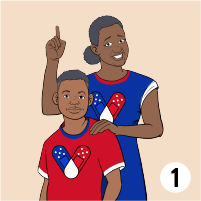
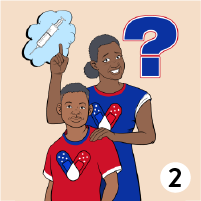
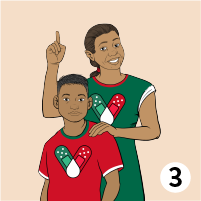
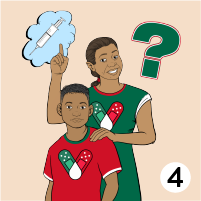
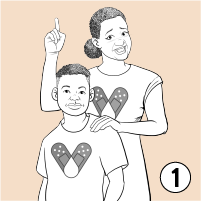
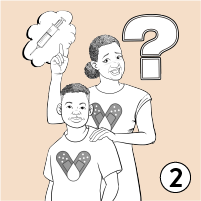
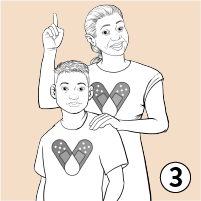
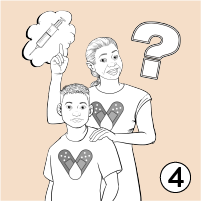
- Momand Child vaccine BlueTranspBackgr.png (203.84 KB)
- Momand Child vaccine Blue.png (262.32 KB)
- Momand Child vaccine Latin Question.png (276.95 KB)
- Momand Child vaccineLatin.png (224.87 KB)
- Mother+Child_Vaccination_2.png (313.04 KB)
- Mother+Child_Questions-Vaccination_2.png (430.61 KB)
- Mother+Child_Vaccination.png (240.75 KB)
- Mother+Child_Questions-Vaccination.png (304.64 KB)
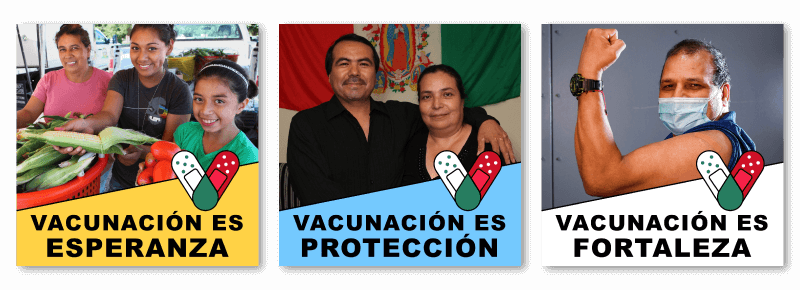
- 8-3-22_Vaccination-is-Hope_Image_0.jpg (73.53 KB)
- 8-3-22_Vaccination-is-Protection_Image_0.jpg (55 KB)
- 2022-8-4_vaccination-is-strength_image.png (119.14 KB)
- 8-3-22_Vaccination-is-Hope-HC_Image_0.jpg (63.89 KB)
- 8-3-22_Vaccination-is-Love-HC_Image_0.jpg (70.32 KB)
- 8-3-22_Vaccination-is-Strength-HC_Image_0.jpg (44.04 KB)
